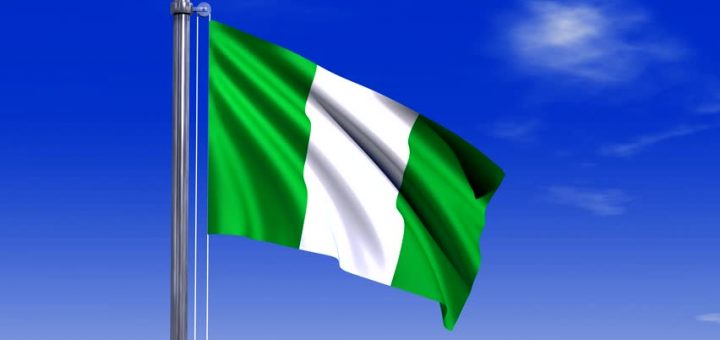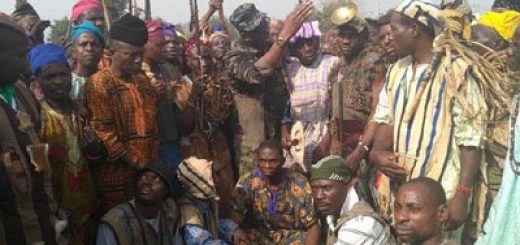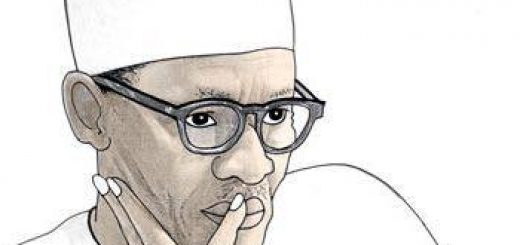Nigeria: 65 Years On – Rejoice or Regret? – By Frank Ofili
186 views
Let us take it as an assumption that Nigeria is a man. Let us take it for granted that the man, Nigeria, was born on 1st January 1914 by Northern and Southern Protectorates. The forebears of the Northern and Southern Protectorates were subjugated, emasculated, subdued, and later, some captured and transported to foreign lands in what is today known as the infamous trans-atlantic slave trade – a most heinous crime.
Let us also take it for granted that the parents died immediately after giving birth to him in 1914, thus living the midwife (the British colonialists) who wedded the two parents, by fiat of Amalgamation, with the burden of nurturing and taking care of the new baby. Between 1914 – 1960 Nigeria was under the care, tutelage and mentorship of this midwife-foster-parent. On 1st October 1960 however, at age 46, the man secured his freedom from the foster parent. Thus began his new journey, and in a manner speaking, a new birthday of sorts for him.
(a) country that has been independent for 65 years is generally expected, by global developmental standards, to have reached a certain level of political maturity, economic development, institutional stability, and social cohesion, all of which rest squarely on leadership capacity.
Since becoming his own man 65 years ago today the man has been trying to manage his affairs the best way he can with its attendant ups and downs. To all intents and purposes, a 65-year old man is, by global standards, expected to have recorded some milestones and achievements such as a stable family with children (and may be even grandchildren), stable finances, freedom from debt (or have minimal debt), recognition in his profession or field, a sense of peace or purpose, a sense of self, values, perspective, freedom or discretion, and a legacy he can proudly pass on to his children.
Conversely, a country that has been independent for 65 years is generally expected, by global developmental standards, to have reached a certain level of political maturity, economic development, institutional stability, and social cohesion, all of which rest squarely on leadership capacity.
Though expectations vary based on each country’s peculiar conditions such as colonial legacy, level of natural resource endowments, population, geography, culture etc. whatever conditions there are, at 65 years of independence, a country ought to have achieved a stable and functioning state, a growing and moderately diversified economy, basic public services for most citizens, democratic or effective governance structures, and a population that identifies with the nation and sees a future in it.
But at 65 years of Independence, what is Nigeria’s story? That is what this write-up aims explore.
Due to a paucity of reliable data for the first 15 years of Nigeria’s Independence (1960 – 1975), I shall begin my examination of our story from 1975. The paucity of data was of course due to the epic political developments that took place in the emergent new state during this period. These political developments include ethnic tension and regional rivalry, political corruption and instability, weak democratic institutions, failure of the new civilian regime to manage diversity, and a growing unrest – all of which brought about military intervention in Nigerian politics, culminating in the January 1966 military coup, the counter-coup of July of the same year, and the 30-month Nigerian civil war (1967- 1970).
The post-civil war period (1970 – 1975) witnessed a different challenge of altogether – that of reconciliation, reconstruction and rehabilitation. Now come with me, let’s examine our 50-year journey (1975 – 2025) to date.
Population:
I975 – 64million
2025 – 237.5million (estimated)
World Bank/IMF
Gross Domestic Product (GDP):
1975 – $25.27billion
2025 – $193.39billion (estimated)
World Bank/IMF
Nominal GDP:
1975 – $25.5billion
2025 – $213.3billion
(World Bank/IMF)
GDP per Capita:
1975 – $398
2025 – $836 (projection)
World Bank/IMF
GDP Growth Rate:
1975 – +6.2%
2025 – +3.1% (projection)
[Word Bank/IMF]
Poverty Rate (Percentage of population living below the poverty line):
1975 – 65%
2025 – 60% or 129million
[World Bank/IMF]
Unemployment Rate:
1975 – 3%
2025 – 4.8% (estimated)
[Statista]
Inflation Rate:
1975 – 5.4%
2025 – 26.5%
[IMF]
Balance of Payments:
1975 – No data (largely agrarian economy)
2025 – $3.73billion (Q1 2025)
[Vanguard]
Foreign Direct Investment:
1975 – $470million (1.69% of GDP)
2025 – $126.29million (Q1) 70.06% decline
[Daily Post]
Foreign Reserve
1975 – $1.1billion (largely agrarian economy)
2025 – $42.03billion
[Nairametrics]
Debt-to-GDP Ratio:
1975 – 6% (largely agrarian economy)
2025 – 39.4%
[Business Times]
Budget Deficit/Surplus: Spending vs Revenue:
1975 – Unavailable
2025 – (Expenditure N47.97trillion; Revenue N34.82trillion = Deficit 37.6%)
(Business Times)
Interest Rate:
1975 – Unavailable (monetary policy managed differently at the time)
2025 – 27.0%
[Reuters]
Literacy Rate:
1975 – Unavailable
2025 – 62% (estimated)
[Business Day]
Life Expectancy
1975 – 43.05 years
2025 – 54.6 years
[World Bank]
Between 1975 and 2025 a lot of course happened, and is still happening, in the political economy of Nigeria. However, given the data above, are we to rejoice or regret our freedom from colonial rule? The picture remains painfully mixed. For every reason to rejoice, there is also a counterpoint that stings of regret, given our vast resources.
What is there to rejoice about?
Cultural diversity/Dominance: With over 370 ethnic groups and more than 500 languages, Nigeria’s diversity spans ethnicity, language, religion, traditions, and art. This diversity is a major part of our identity and social dynamics. Hence it is worth celebrating that despite the challenges of wielding several fractious and differing cultures together we have managed to remain one.
Also worth celebrating is our cultural dominance. Our creative industries have exploded. Nollywood is a global phenomenon. Afrobeats artists like Burna Boy, Davido, and Tems sell out arenas worldwide. Nigerian authors, designers, and filmmakers are also shaping global narratives.
Nigeria is not a failed state, at least not yet, but it is a struggling one. It is not by any means of measurement where it should be in the comity of nations, but it is not where it used to be. It is however a journey of resilience and hope.
Democratic Resilience: Since the return to civilian rule in 1999, Nigeria has sustained over two decades of democracy. Despite flaws in the system a’la election irregularities, voter suppression, vote-buying and political violence, state capture etc. power transitions have mostly been peaceful.
Youthful Innovation: Nigeria’s youth are not just dreaming, they are also building. In technology, fintech startups like Flutterwave and Paystack are redefining Africa’s digital economy. Despite government inefficiencies, young Nigerians are driving innovation, from agriculture to the arts.
Global Presence: From peacekeeping missions to diplomatic influence in ECOWAS and the African Union and the Commonwealth, Nigeria remains a heavyweight. Its diaspora community is excelling too and contributing back home through remittances and investment.
There are, however, regrets.
Widespread Insecurity: Terrorism, banditry, kidnapping, and communal violence have left thousands dead and millions displaced. The government’s response has often been reactive, under-funded, or poorly coordinated. Also, the civil war of 1967 – 1970 during which over a million Nigerians lost their lives remains to date a dark spot in the nation’s history.
Economic Hardship: Despite being Africa’s largest economy on paper, the reality for many Nigerians is poverty. Unemployment is high, inflation is crippling, and the national currency, the Naira, continues to lose value. The wealth gap is just too much for comfort.
Endemic Corruption: Successive governments have promised to tackle corruption, yet billions are lost yearly to theft, mismanagement, and waste. Institutions remain weak, and public trust is dangerously low. Public office holders live large in a manner that is, to all intents and purposes, disproportionate to their legitimate income. Consequence management for official misdemeanors remains zero. Cost of governance remains excessively high without commensurate deliverance of dividends of democracy to the people.
Brain Drain and Hopelessness: The “japa” wave (young Nigerians fleeing the country in search of better opportunities abroad) reflects a generation that feels abandoned by the system. The best minds are leaving, and few see a future worth staying for.
So, is it rejoice or regret?
The truth is, Nigeria at 65 is both. To rejoice blindly is to ignore the pain of millions. To regret entirely is to dismiss the resilience, creativity, and potential that still burns brightly in every corner of the country.
Nigeria is not a failed state, at least not yet, but it is a struggling one. It is not by any means of measurement where it should be in the comity of nations, but it is not where it used to be. It is however a journey of resilience and hope.











